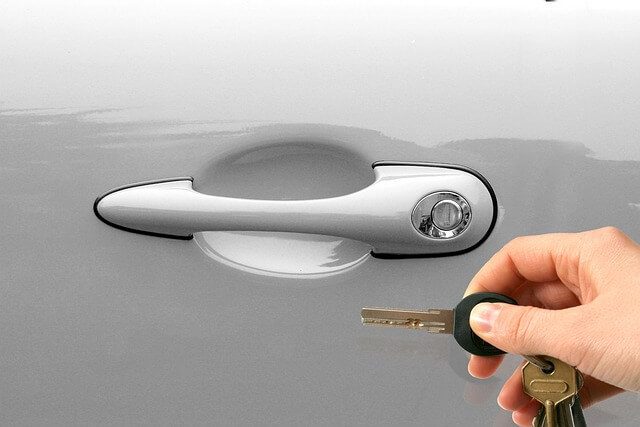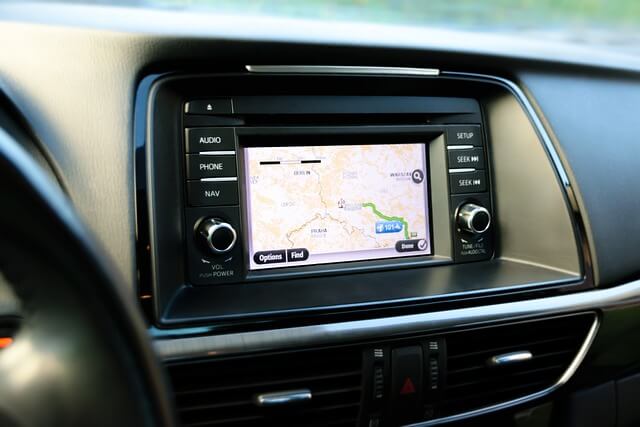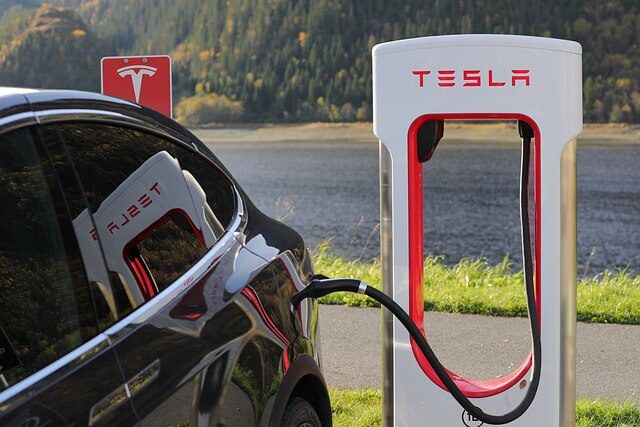
Winter Driving Tips and Tricks
18 January 2024
Tyre Sizes in the UK
7 March 2024Pros and cons of leasing a car
Many individuals find themselves grappling with the decision of whether to lease or buy a car in today's fast-paced world. Leasing provides the appeal of driving a brand-new vehicle without the need for a long-term commitment to ownership. Nevertheless, it is crucial to thoroughly consider the pros and cons of leasing a car before reaching a conclusion. So let's explore the different aspects of leasing a car, considering both its pros (advantages) and cons (disadvantages).
In this article
ShowHide- Pros and cons of leasing a car
- Exploring the Concept of Leasing
- Pros of Leasing a Car
- Cons of Leasing a Car
- Financial Factors to Consider
- Factors that Impact Your Lifestyle
- Comparison of Leasing Vs Buying
- Environmental Impact
- Tips for Negotiating with Dealers
- FAQ's - Pros and Cons of Leasing a Car
- What are the differences between leasing and buying a car?
- Is it possible to negotiate the terms of a lease?
- What are the consequences of exceeding the mileage limit?
- Should I Consider Leasing?
- What are my options at the end of a lease?
- Is it possible to lease a pre-owned vehicle?
- What factors should be taken into account when comparing lease offers?
- Summary - Pros and Cons of Leasing a Car
Exploring the Concept of Leasing
Before we delve into the pros and cons, let's first clarify what leasing a car actually involves. What exactly Does Car Leasing entail? Leasing a car entails the rental of a vehicle for a specific duration, usually ranging from two to four years, along with a pre-established mileage restriction.
Contrary to purchasing, where you become the sole owner of the vehicle, leasing grants you the opportunity to utilise the car for a predetermined period of time, after which you are required to return it to the leasing company.
Pros of Leasing a Car
Leasing a car offers numerous pros that make it a compelling choice for a wide range of customers as it will far outweigh the cons. Let's take a look at some of the major benefits to consider:-
Enjoy Affordable Monthly Payments
Leasing offers the benefit of more budget-friendly monthly payments when compared to buying. Monthly payments are usually more affordable when leasing a vehicle because you only pay for the depreciation during the lease term, rather than the full purchase price.
Get Your Hands on the Latest Models
Leasing gives you the opportunity to drive a brand new car more often, giving you access to the most up-to-date models with cutting-edge features and technology. Rest assured that you will always be in control of a dependable and up-to-date vehicle.
Low Initial Expenses
In contrast to purchasing a car, leasing typically involves minimal upfront costs, which makes it a viable choice for people with limited savings. In addition, leasing can help cover certain maintenance costs that may be included in the warranty, which can help lower the initial expenses.
Reduced Repair Expenses
Leasing a vehicle usually includes the benefit of being protected by the manufacturer's warranty for the entire lease duration. You can rest easy knowing that you won't be burdened with costly repairs for significant mechanical problems. This will give you a sense of calm and financial stability.
Flexibility
At the end of the term, leasing provides increased flexibility. You have the option to return the vehicle and lease a new model, purchase the car at a predetermined price, or simply walk away, based on your preferences and circumstances.
Tax Benefits
Leasing a car can provide tax advantages for business owners in certain situations. Lease payments can be tax-deductible when the vehicle is used for business purposes, offering potential savings during tax season.

They are many pros of car leasing that can far outweigh the cons
Cons of Leasing a Car
Although leasing a car has its pros, it is important to carefully evaluate the potential cons before reaching a conclusion. It's important to consider a few drawbacks:-
Limitations on Mileage
Many lease agreements include restrictions on the number of miles you can drive each year, which may result in extra charges if exceeded. Violating these limits can lead to expensive penalties when the lease term ends.
No Ownership Equity
Leasing a car does not result in the accumulation of equity, unlike purchasing one. You're basically leasing the vehicle for a specific duration, without any ownership rights once the lease term is over. Once the lease is up, you won't have any asset to sell or trade-in for a new car.
Extra Costs
Lease agreements commonly come with a range of fees and charges, including acquisition fees, disposition fees, and charges for excessive wear and tear. The accumulation of these extra expenses can rapidly erode the overall appeal of leasing.
Restricted Customisation
Leasing a car usually comes with limitations on customisations and modifications. As the vehicle is not yours, it must be returned in its original condition when the lease term ends, which restricts personalisation choices.
Continuous Payments
Unlike purchasing a car, where payments eventually stop once the loan is fully repaid, leasing requires ongoing payments for as long as you choose to lease vehicles. This ongoing expense can become quite burdensome over time, particularly if your financial situation undergoes any changes.
End-of-Lease Obligations
When the lease term comes to an end, it is your responsibility to ensure that the vehicle is returned in good condition, while also adhering to the mileage limits and settling any outstanding fees. Not meeting these obligations can lead to extra fees, which can make leasing less affordable.
Financial Factors to Consider
When looking at the pros and cons of leasing a car, it's important to consider financial factors to help you reach a decision.
Initial Expenses
When you decide to lease a car, there are certain upfront costs that you'll need to take care of. These include a security deposit, the first month's payment, and an acquisition fee. Although the costs are generally lower than a down payment for purchasing, they still need to be taken into account.
Depreciation Factor
Considering the depreciation rate of the car you're leasing is crucial because you're essentially paying for the vehicle's depreciation over the lease term. Opting for a vehicle that experiences less depreciation can lead to more affordable monthly payments.
Charges at the End of Your Lease
Upon the conclusion of the lease term, there is a possibility of incurring extra costs, including fees for excessive wear and tear, penalties for exceeding mileage limits, and charges for the disposition of the vehicle. Having a clear understanding of these charges from the beginning can assist you in planning your budget effectively.
Factors that Impact Your Lifestyle
Your lifestyle and requirements should be taken into consideration when reviewing the pros and cons of leasing a car.
Driving Behaviour
Take a moment to reflect on your driving habits before deciding to lease a car. If you often go over mileage limits or tend to be rough on your vehicles, leasing might not be the most suitable choice for you.
Plans for the Future
Consider your future plans carefully before signing a lease agreement. If you're expecting significant life changes like starting a family or switching jobs, leasing might not provide the flexibility you require.
Vehicle Requirements
Take into account your individual vehicle requirements prior to considering a lease. Ensure that leasing can meet your specific vehicle requirements for work or hobbies.

There are a few cons to car leasing that for some may outweigh the pros
Comparison of Leasing Vs Buying
There are both pros and cons whether you are leasing or buying a car.
Financial Implications
Examine the financial consequences of leasing a car versus buying and all the pros and cons, taking into account your specific situation. Although leasing may provide the advantage of lower monthly payments initially, purchasing can prove to be more financially advantageous in the long term.
Comparing Long-Term and Short-Term Commitment
Take into account your future objectives when making a choice between leasing and buying. Leasing provides you with the advantage of flexibility and lower upfront costs, while buying a vehicle enables you to gradually build equity over time.
Advantages of Ownership
There are several advantages to owning a car instead of leasing one. For instance, you have the freedom to personalise your vehicle, no need to worry about mileage restrictions, and the chance to build equity over time.
Environmental Impact
When looking at the pros and cons of leasing a car, it's important to consider the environmental impact.
Pros of Leasing a car
Opting for a newer, more fuel-efficient vehicle can bring about positive environmental impacts, including decreased emissions and improved fuel efficiency. If you care about the environment, leasing might be a good fit for you.
Environmentally Friendly Vehicle Choices
Leasing a hybrid or electric vehicle can have an even greater environmental impact. There is a wide selection of sustainable vehicle options available from leasing companies.
Tips for Negotiating with Dealers
When you've considered all the pros and cons of leasing a car and are ready to go ahead with a car lease, here are our tips:-
Getting Familiar with Lease Terms
It is important to thoroughly comprehend the lease terms and conditions prior to signing any agreements. It's important to consider factors like mileage limits, wear and tear guidelines, and end-of-lease fees.
Exploring Market Rates
Conduct thorough research to establish the appropriate market rates for the vehicle you wish to lease. This will provide you with an advantage when negotiating with dealerships.
Tips for Lowering Down Payments and Fees
Feel confident in your ability to negotiate down payments and fees with the dealership. Plenty of dealers are happy to collaborate with customers to find an arrangement that benefits both parties.
FAQ's - Pros and Cons of Leasing a Car
What are the differences between leasing and buying a car?
There are pros and cons to both leasing and buying a car. Leasing allows for more affordable monthly payments and the opportunity to drive newer models, while buying offers the advantage of building equity and the freedom to customise your vehicle.
Is it possible to negotiate the terms of a lease?
Lease terms can be negotiated to accommodate your preferences, such as the duration of the lease, mileage restrictions, and monthly payment amounts. It's crucial to conduct thorough research and carefully compare offers from various dealerships to guarantee that you're securing the most advantageous deal.
What are the consequences of exceeding the mileage limit?
Going over the mileage limit stated in your lease agreement may lead to additional charges for exceeding the allowed mileage when the lease term ends. Accurately estimating your driving habits and negotiating a mileage limit that suits your needs is of utmost importance.
Should I Consider Leasing?
Deciding if leasing is the best option for you relies on your personal preferences, financial situation, and driving patterns. Take into account factors like monthly payments, mileage requirements, and long-term financial goals prior to making a decision. Leasing a car has its pros and cons, but ultimately, you have to decide what is best for you and your circumstances.
What are my options at the end of a lease?
At the end of a lease, you typically have the option to return the vehicle and walk away, purchase the vehicle at a predetermined price, or lease a new vehicle.
Is it possible to lease a pre-owned vehicle?
Indeed, certain dealerships provide leasing options for certified pre-owned vehicles. Opting for a pre-owned vehicle when leasing can result in more affordable monthly payments and reduced depreciation expenses compared to leasing a brand-new car.
What factors should be taken into account when comparing lease offers?
When evaluating lease offers, it's crucial to take into account various factors, including the overall lease cost, mileage limit per year, upfront fees, and duration of the lease. Furthermore, it is important to consider the residual value of the vehicle and the obligations that come with the end of the lease.
Summary - Pros and Cons of Leasing a Car
Ultimately, when considering whether to lease a car, it is important to carefully evaluate the advantages and disadvantages in order to make the most suitable choice for your specific requirements and situation. Although leasing a car has its pros like lower monthly payments, access to new models, and minimal upfront costs, there are also some cons to consider.
These include mileage restrictions, ongoing payments, and end-of-lease obligations. Through a thorough analysis of your priorities and a comprehensive assessment of all the pros and cons of leasing a car, you can arrive at a well-informed decision that is in line with your lifestyle and budget.
It's always a good idea to seek advice from a reliable automotive expert or financial advisor if you have any enquiries or uncertainties regarding car leasing.
Get in touch for professional lease car repairs
We hope you enjoyed reading our article on the pros and cons of leasing a car and found it useful. If you're looking for professional end of lease car repairs, then bring your vehicle to our car body shop in Radcliffe near Manchester and our professional technicians will take care of it for you.
In addition, for your convenience, we offer a fully mobile service and can come to you. We cover the whole of Greater Manchester, Lancashire, Cheshire, Merseyside and Yorkshire.
If you’d like to get a price for our professional car body repairs service, then please get in touch with us now on 0161 667 0919 or by filling out our quick quote form to get a free, no-obligation quotation.
We have lots of 5 star reviews on Google from happy customers, so please feel free to check out our reviews.
Or contact our team to arrange a time to bring your vehicle in for an estimate. We look forward to restoring your vehicle and getting you back on the roads!



